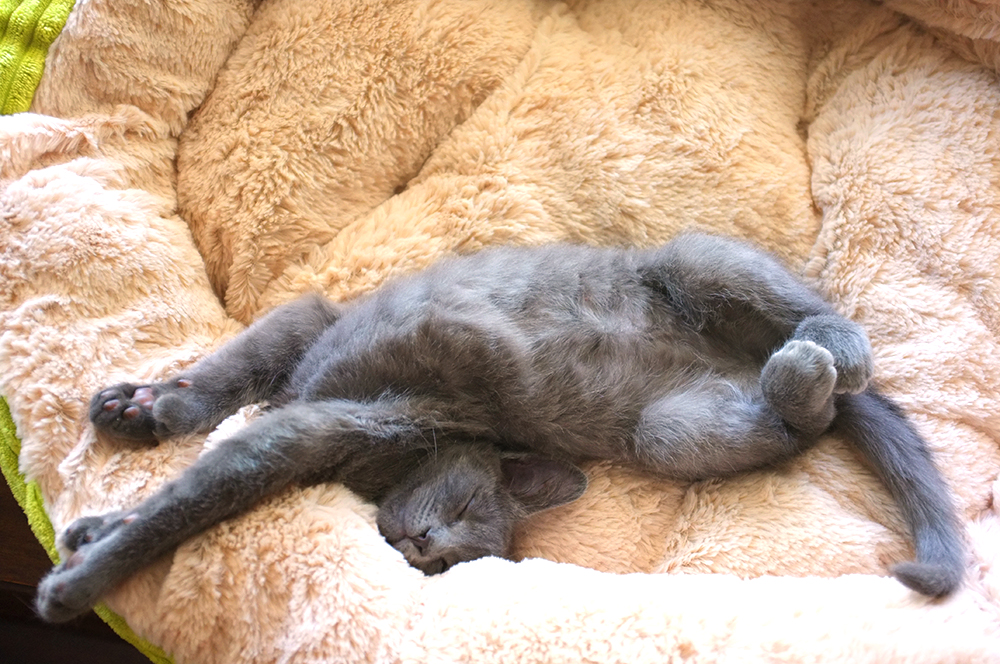Dr. Spooner often compares cat medicine to falling off a cliff. Why? Cat’s occupy a unique niche in nature. They are the predators as the bird/mice/bug catchers. However, cat’s can also be preyed upon by larger animals. As with any species that can be attacked by a predator, the need to hide their vulnerability — such as signs of illness and pain.
By the time your cat is showing clinical signs their condition or disease may be quite advanced. How can we help? By assisting you to recognize early signs of illness and pain in your cat.
Pain
Here are some subtle signs of pain in cats.
- Scrunched up body position, not relaxed
- Hiding from humans
- Licking of lips when touched in a painful area
- Small increase in breathing in when touched in painful area
- Change in their normal routine
- Difficulty jumping down from heights
- Breathing movements shift from the chest area to the tummy area
- Subtle increase in breaths per minute or more shallow breathing
- Going from enjoying hard kibble to eating only wet food.
Nausea
The following signs may mean that your cat is nauseated. This can be caused by a number of disease and is an important sign of illness.
- Being fussier over their food
- Taking a few nibbles and walking away
- Sniffing at food and walking away
- Constantly asking for a new “flavour”, and will eat it for a few days but then stop
If you observe any of these signs or suspect your cat is in pain, please contact us ASAP — please do not wait! Once cats exhibit signs of pain their conditions can worsen very rapidly.
And remember, if it is an emergency and we are closed, we highly recommend you take your cat to the 24 hour emergency clinic DMV!

Change in Thirst
Another big indicator of changes in your cat’s health linked to disease is their water consumption.
- Suddenly every time you turn around your cat is at the water bowl
- Or, the cats stops drinking altogether
- Increased thirst can be an important early sign of serious diseases such as kidney disease, hyperthyroidism, and diabetes
- Lack of thirst can also mean your cat is not feeling well
Change in Litter Box Habits
Signs of pain, discomfort, and in particular urinary issues often manifest in the a cat’s litter box habits.
- Suddenly avoiding the litter box, and going elsewhere
- Frequently visiting the box without using it
- Crying or vocalizing while in the box
- Visibly straining while in the litter box
- Change in stool consistency hard, rabbit-like pellets will result in pain and your cat will avoid the box, diarrhea is a serious condition that should not be left untreated
